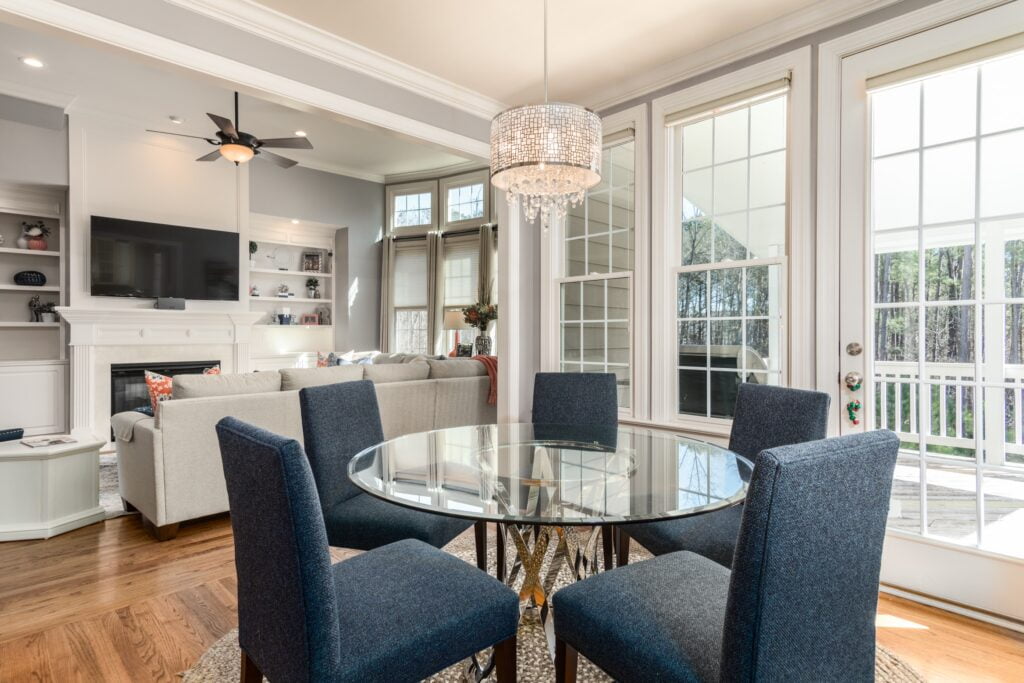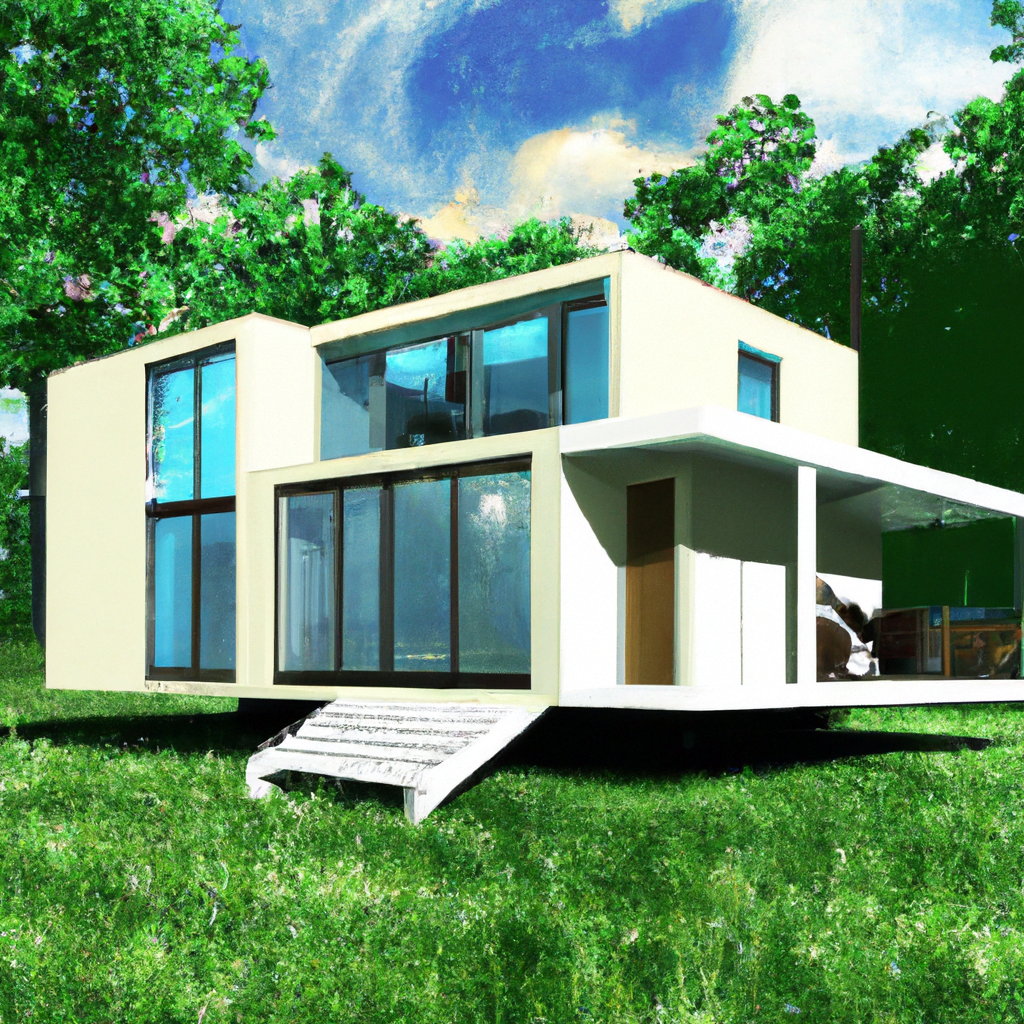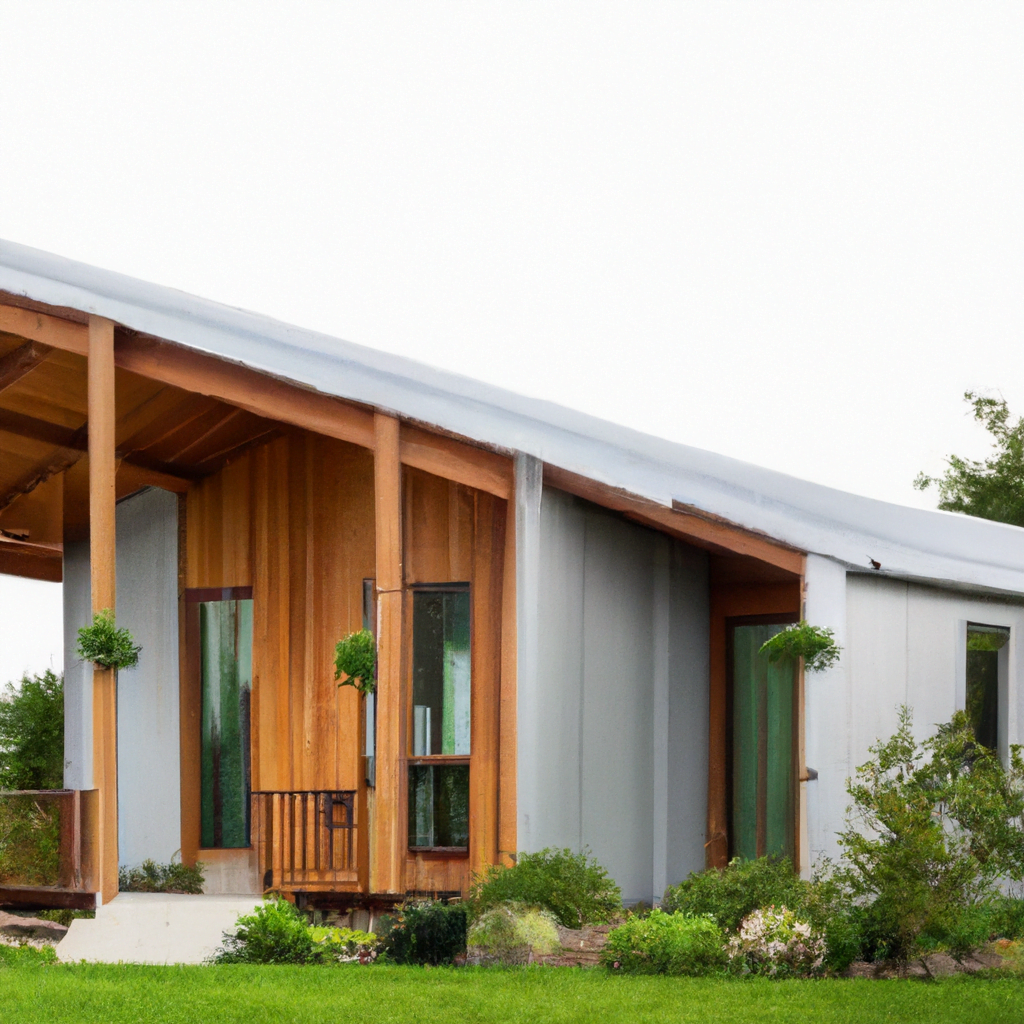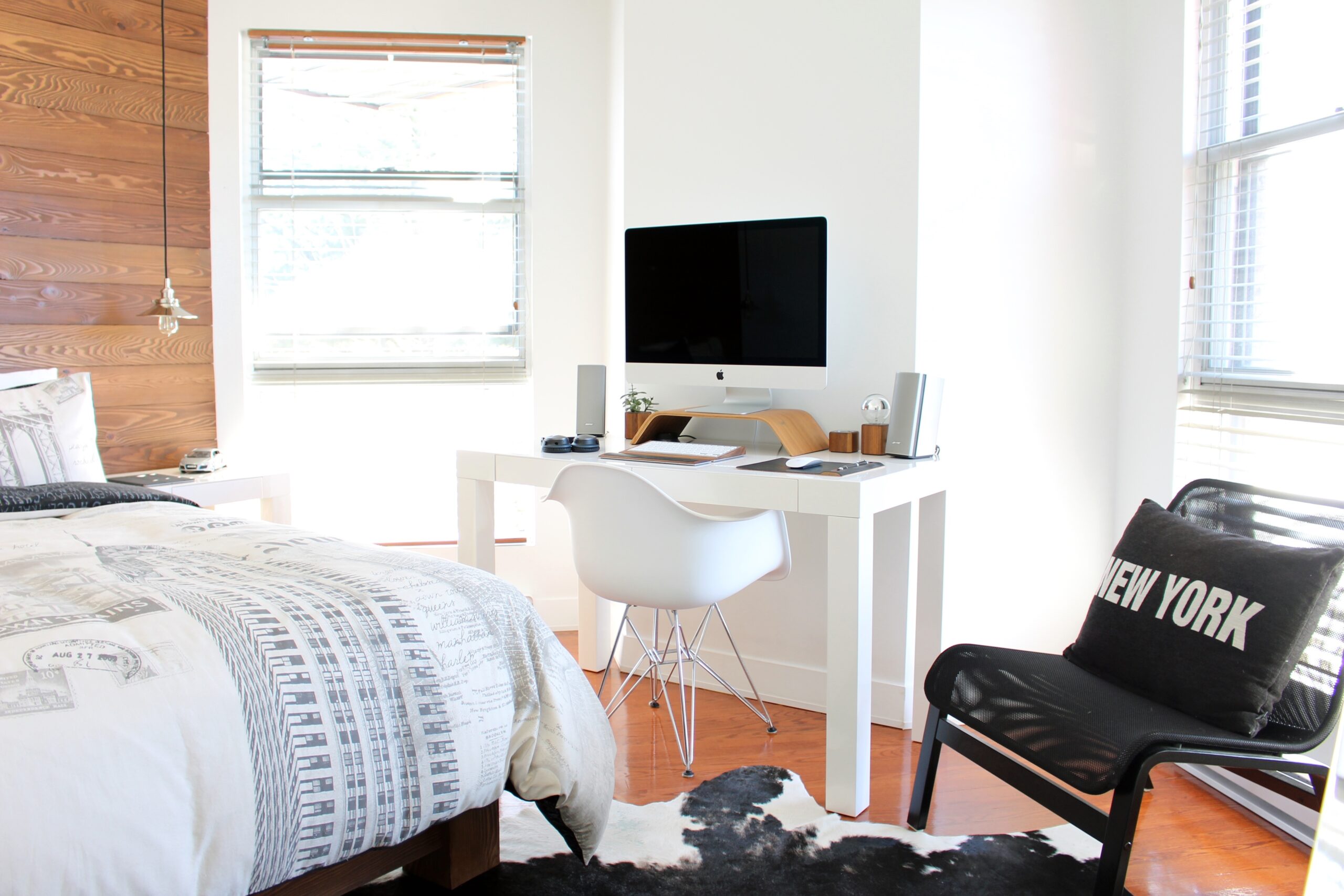In the evolving landscape of Egypt’s real estate, “Modular Homes: Innovating Housing with Efficiency” provides an in-depth look at the latest and most transformative trends. Your journey into this progressive sector begins with modular and prefab homes. These modern, energy-efficient, and cost-effective housing options are reshaping Egypt’s property market, offering an innovative solution to traditional construction challenges. Get ready to explore the exciting world of these remarkably stylish and affordable homes that are rapidly becoming a homeowner’s dream.

Understanding Modular Homes
Modular homes play a key role in revolutionizing the global housing industry. In the following sections, you’re going to learn exactly what they are and understand their significance in the real estate industry.
Definition of Modular Homes
A modular home is a type of house built in sections in a factory environment. This means that every part of a modular home is constructed offsite away from the usual outdoor construction obstacles like weather conditions. Once all the components are ready, they are then transported to the site for assembly.
Significance in Real Estate Industry
Modular homes are rapidly gaining ground in the real estate industry. One major reason for this is the efficiency in building times that modular homes bring to the table. Since significant portions of the home are built offsite, both construction periods and costs are significantly reduced. This feature is valuable within the real estate industry, especially in times of high demand for housing.
Popularity in Egypt
In Egypt, modular homes are increasingly becoming common owing to factors like rapid urbanization, population growth, and the general push for more sustainable housing options. Modular homes present a unique solution that marries efficiency, affordability, and sustainability, making them attractive to both consumers and stakeholders in the real estate industry.
Construction Process of Modular Homes
It’s not magic, is it? You’ll be glad to know it isn’t. The construction process of modular homes is quite intricate, entailing a few decidedly distinct phases.
Design Phase
The design phase of a modular home is similar to that of traditional homes, with one key difference: the design needs to be optimized for assembly line production. Usually, computer software is used to create plans that can be quickly and accurately replicated in the factory.
Manufacturing Process
Once the design phase is complete, these plans are sent to a factory where each section, also known as a module, is individually built. This process involves constructing the floors, walls, and roof systems, installing windows and doors, and often even finishing with paint and trim.
Onsite Assembly
Once all modules are constructed, they are transported to the building site. A crane lifts the modules onto the foundation, where they are joined and sealed to form a single, integrated building. Onsite work typically includes installing utilities, finishing exterior and interior surfaces, and completing any site-specific features such as a garage or porch.
Regulations and Compliance in Egypt
In Egypt, modular homes must adhere to the same building codes and regulations as traditional, site-built homes. Additionally, modular home manufacturers must have their plans inspected and approved by governmental agencies to ensure compliance with national and local building codes and standards.
Efficiency and Cost-Effectiveness of Modular Homes
One of the biggest draws of modular homes is how efficient and cost-effective they are.
Economies of Scale
Since multiple home units can be built simultaneously within the same factory setting, manufacturers achieve economies of scale, which reduces the overall cost per unit. This results in lower prices for the final consumer.
Reductions in Material Waste
Modular home construction is highly efficient, and material waste is kept to a minimum. The precise, computer-assisted design and manufacturing process mean that materials can be ordered in the exact quantities required, reducing waste and contributing to the environmental sustainability of these homes.
Shorter Construction Times
Because of indoor factory construction, modular homes are not subject to weather-related delays or damage. This considerably shortens the time from the start of construction to when the home is ready to be occupied, saving both time and money.
Modular vs Traditional Building Methods
The debate between modular and traditional building methods is one that continues to evolve. Each has its strengths, but there are some key differences.
Building Process Comparison
While traditional homes are built entirely onsite, modular homes are constructed in factories before being transported to the construction site for final assembly. This means that the construction of a modular home can be completed in a matter of weeks, as compared to months for a traditional home.
Impact on Investment Returns
Because of the shorter construction times and lower costs associated with modular homes, they can offer significantly higher returns on investment than traditional homes, particularly in markets like Egypt where the demand for affordable, quality housing remains high.
Environmental Considerations
Modular homes also have a smaller environmental footprint compared to traditional homes. They require less material and produce less waste due to the precision of factory construction. Moreover, since most of the construction occurs in a factory, there is less site disturbance and pollution.

Potential Market in Egypt for Modular Homes
There is huge potential in Egypt for the growth of modular homes, with contributing factors ranging from demographic changes to supply and demand factors.
Demographic Factors
Egypt has a rapidly growing population with increasing urbanisation. This is driving significant demand for affordable, quality housing.
Demand and Supply Factors
Currently, the supply of traditional housing is struggling to keep up with the demand. Modular homes, with their quicker build times and lower costs, are ideally positioned to bridge this gap.
Market Trends and Predictions
The market for modular homes in Egypt is expected to grow at a strong pace in the coming years. As the benefits of modular housing become more widely recognized, and as the government continues to support more sustainable and affordable housing solutions, the expansion of the modular homes market seems inevitable.
Benefits and Perceived Drawbacks of Modular Homes
Despite their many advantages, modular homes also have perceived drawbacks that can impact their acceptance.
Quality and Customizability
Modern modular homes offer superior quality and an unprecedented level of customizability. With advances in design and manufacturing technology, it’s now possible to build modular homes that are indistinguishable from traditionally built homes in terms of aesthetic quality and life expectancy.
Issues of Perception and Acceptance
Despite their many advantages, modular homes often face perception issues. Some people still associate them with low quality and limited customization options. However, with continued advancements in the industry and increasing awareness of the benefits of modular homes, these perceptions are rapidly changing.

Impact of Modular Homes on Egypt’s Real Estate Industry
As modular homes become more common in Egypt, their impact on the real estate industry will only grow stronger.
Indirect Cost Savings
Modular homes offer significant cost savings, not just in the terms of the upfront cost of construction, but also indirect savings from faster construction times and lower maintenance and energy costs over the long term.
Housing Supply and Affordability
By reducing construction times and costs, modular homes can play a crucial role in increasing housing supply and affordability. This will help to meet the growing demand for housing in rapidly urbanising areas.
Industry’s Adaptability to New Technologies
The increasing popularity of modular homes is also driving the adoption of new technologies within the real estate industry. This includes everything from advanced design software to more efficient manufacturing technologies and processes.
Key Players in Egypt’s Modular and Prefab Homes Market
While the modular homes market in Egypt is still developing, there are several key players that are staking a claim in this emerging area.
Local Manufacturers
Local manufacturers have been quick to identify the potential of modular homes, investing in new factories and manufacturing technologies to meet the growing demand.
International Companies with Egypt Operations
International companies are also playing a key role in the evolution of Egypt’s modular homes market. These companies are bringing international expertise and technology, helping to raise the bar in terms of quality and design.

Case Studies of Modular Home Projects in Egypt
There are already several examples of successful modular home projects in Egypt.
Residential Projects
From individual family homes to large-scale housing developments, modular homes are increasingly being used to provide affordable, high-quality housing options across Egypt.
Commercial and Institutional Buildings
Modular construction is not just limited to residential projects. A number of commercial buildings, including office blocks and even schools, have also been successfully constructed using modular construction methods.
Future Prospects and Challenges of Modular Homes in Egypt
Looking towards the future, the prospects for modular homes in Egypt are incredibly promising, though they remain challenges that need to be addressed.
Influence of Economic Factors
The economy of Egypt plays a significant role in the growth of modular homes. A strong economy will lead to increased demand for housing and could boost the market for modular homes.
Potential Policy Changes and Interventions
Government policy can also have an impact on the market. Policies that favor traditional construction methods can hamper the modular home market, while those that promote more sustainable, efficient construction methods can help it grow.
Technological Developments and Innovations
Technological advancements will undoubtedly have a significant influence on the future of modular homes in Egypt. Innovations in design and manufacturing technology will help to improve the efficiency of modular homes construction and potentially allow for even greater customization in the future.
In conclusion, modular homes are an exciting development in the housing industry that offer a number of significant advantages. As awareness of these advantages grows, and as the market in Egypt matures, the future for modular homes looks incredibly promising.


